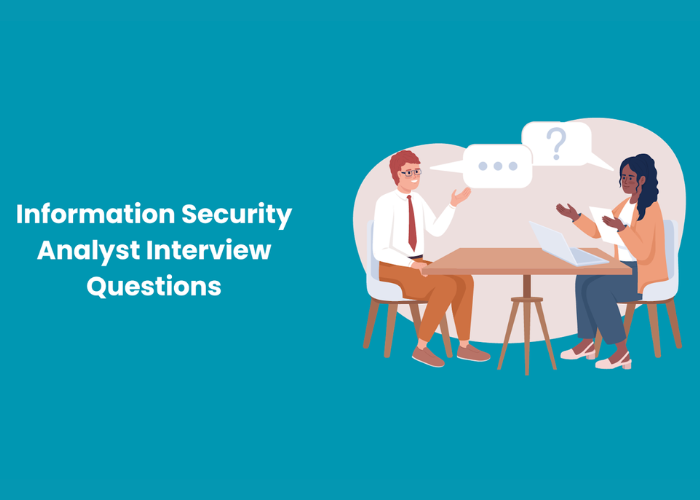Landing a job as an Information Security Analyst may be a thrilling and fulfilling experience, but getting there can be difficult. Employers are picky about who they hire as Information Security Analysts because of the importance of this function in protecting their businesses from cybercrime. In this blog, you will learn eight secrets to ace the interview for the position of Information Security Analyst. Along the process, we’ll explain the value of getting a Certified in Information Security Management Principles – CISMP Certification and address some of the most often-asked Information Security Analysts Security Questions.
What Does an Information Security Analyst Interview Involve?
First, let’s go through what to anticipate during an interview for the position of Information Security Analyst. Technical questions, behavioural tests, and hypothetical scenarios are common components of such interviews. Employers want to hire people who can technically do the job and have strong communication, problem-solving, and analytical skills.
Let’s dive into the eight ways you may improve your chances of being hired as an Information Security Analyst:
- Be sure you have a firm grasp of the cornerstones of cybersecurity, such as encryption, firewalls, IDSs, and security best practices. You can’t credibly answer technical questions without a solid background.
- Do your homework about the firm thoroughly before your interview with them. Learn about the business, its threats, and any recent security breaches. Show that you understand the company’s demands by tailoring your replies to them.
- Prepare yourself to field questions from the more technical end of the interview. Go through network safety, vulnerability analysis, incident handling, and risk management concepts. To demonstrate your understanding, use examples from the actual world.
- Analysts in the field of information security require more than just technical expertise. Consider your interpersonal abilities, such as talking to others, solving problems, working as a team, and being flexible. Provide real-world illustrations of your abilities to illustrate them.
- If you don’t already have it, you should get your CISMP certification. This credential may set you apart from the competition by proving that you understand the fundamentals of information security management. During the interview, be careful to highlight your qualifications.
- Prepare yourself for behavioural queries by practising answers. Phrases like “Tell me about a time when…” and “Give me an example of…” are common ways these queries start. Get some anecdotes ready that highlight your successes, difficulties, and teamwork skills.
- Prepare for problem-solving questions based on hypothetical scenarios. Typical interview questions require you to answer hypothetical situations. Structure your answers using the Situation, Task, Action, and Result (STAR) technique.
- Ask insightful questions regarding the company’s security policies, difficulties, and plans after the interview if given the chance. This demonstrates that you are enthusiastic about the position and the company.
Common Information Security Analyst Interview Questions
Here are some examples of typical interview questions for an Information Security Analyst to help you be ready:
- Please differentiate between an intrusion prevention system (IPS) and a firewall.
- How do you keep abreast of the most recent developments in cybersecurity?
- Give an example of when you had to deal with a security breach. Specifically, what did you do?
- Tell me about the security credentials you’ve earned and their impact on your professional life.
- How do you decide which security holes to fix first?
- Can you elaborate on risk assessment as it relates to cyberspace?
- Please provide an example of a security policy you’ve created or implemented.
- How would you go about protecting a company’s wireless network?
- How do you guarantee that personnel are informed of and comply with all safety regulations?
- In your opinion, what are the most pressing issues in cybersecurity that the business world faces right now?
Remember that interviewers care about more than just your technical expertise; they want to see how you think under pressure, communicate well, and fit in with the company’s culture. Communicate your enthusiasm for cyber security strongly and succinctly.
Conclusion
To succeed in an interview for an Information Security Analyst position, you must be well-prepared regarding technical knowledge and soft skills, especially in the context of IT Security & Data Protection Courses. You may set yourself apart from the competition by ensuring you have a firm grasp on the fundamentals, have a strong portfolio of soft skills, are contemplating a CISMP Certification, and have plenty of experience answering interview questions while also staying up-to-date with the latest developments in IT security and data protection. Keep your cool and confidence high throughout the interview, and reference relevant experiences to highlight your skills.




